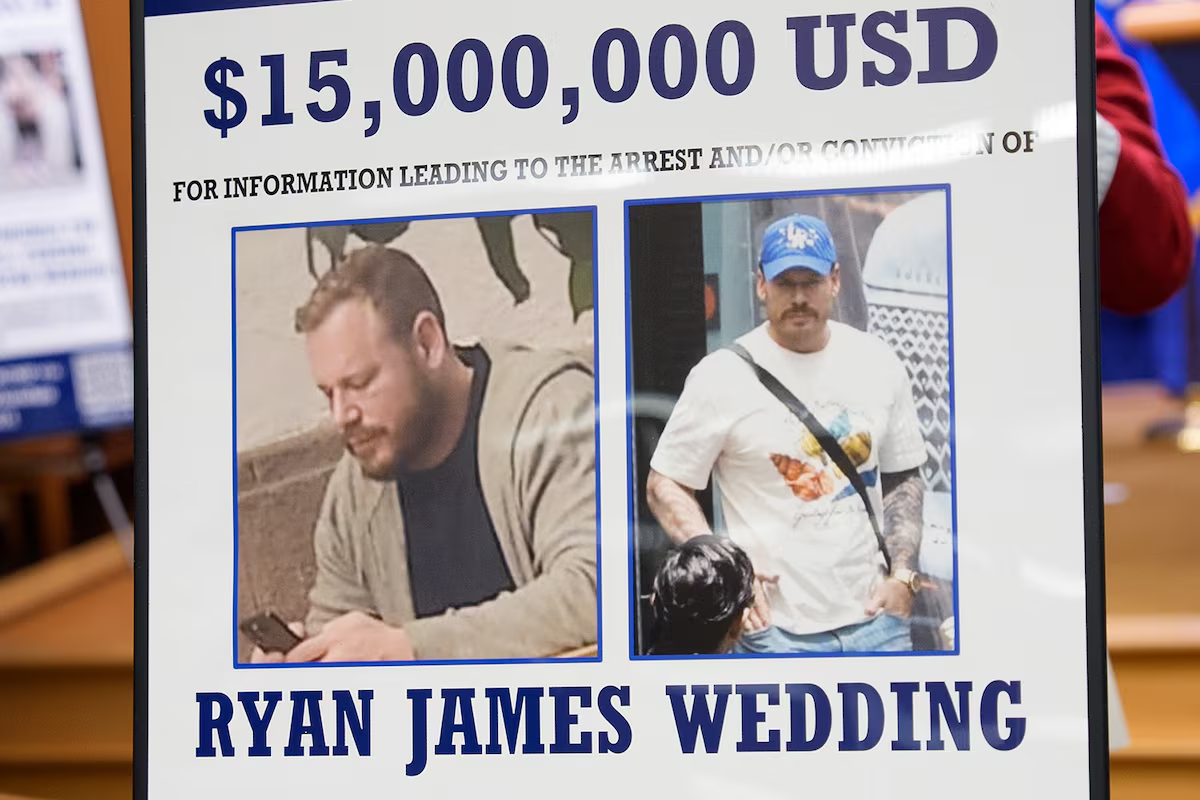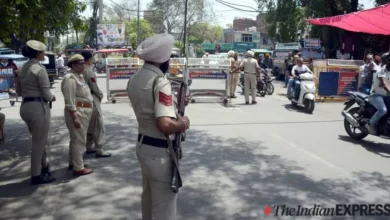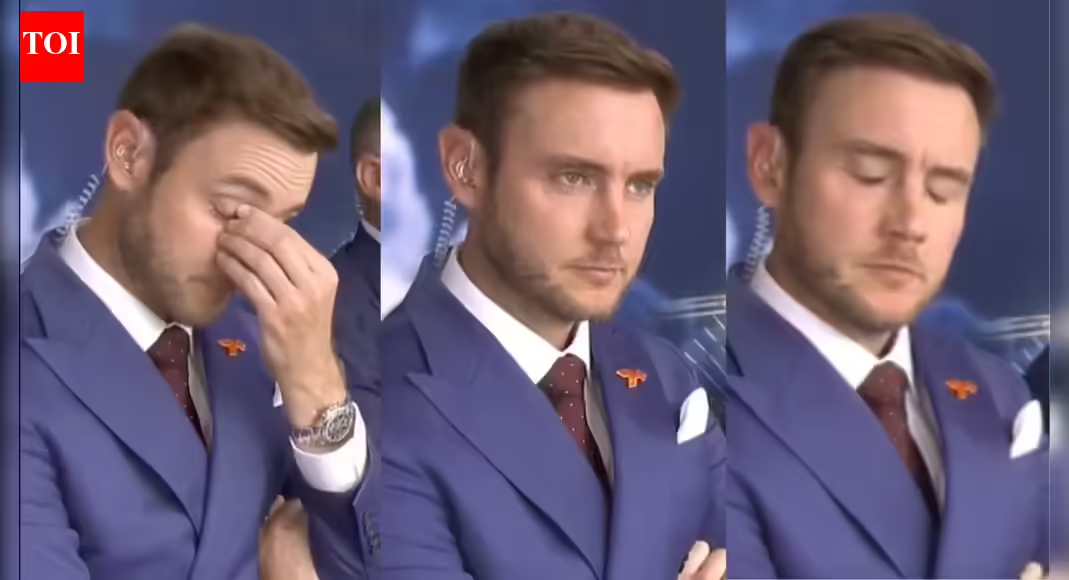Lawyer for Ryan Wedding appears in court as part of extradition proceedings

Open this photo in gallery:
A reward poster for the arrest of Ryan Wedding at a news conference at the U.S. Justice Department announcing his indictment, charging him with murder and money laundering in connection to a drug trafficking organization. None of the allegations have been tested in court.Andrew Harnik/Getty Images
The Toronto-area lawyer for alleged drug kingpin Ryan Wedding and a Vancouver man accused of laundering money for the former Olympic snowboarder appeared in court Wednesday as part of proceedings to extradite them to the U.S.
Two other men who are among the eight Canadians charged last week in relation to the alleged international drug-trafficking ring also had scheduled court appearances on Wednesday.
Efforts to extradite the accused are expected to be complicated by questions about whether U.S. prosecutors will seek the death penalty. And as a recent ruling in a related case illustrates, the proceedings could be lengthy and hard-fought.
Lawyer Deepak Paradkar, who faces multiple charges, including allegedly advising Mr. Wedding to kill a key witness who was set to testify against him, made a brief virtual court appearance in Ontario Superior Court in Toronto. Wearing an orange jail-issue shirt and with a grey beard, Mr. Paradkar was told his bail hearing is scheduled for Dec. 10.
Long before Ryan Wedding was one of the FBI’s most wanted, he was swept up in a U.S. drug case
Meanwhile in British Columbia, Rasheed Pascua Hossain, who faces accusations of laundering hundreds of millions of dollars of the group’s ill-gotten gains, appeared in court via video link with close-cropped hair and clad in a red jail jumpsuit. Mr. Hossain was ordered not to contact any of his co-accused and is to appear in court for his bail hearing next Thursday.
The cases of two other co-accused, Rolan Sokolovski and Gursewak Singh Bal, were also before the Toronto court on Wednesday. They are scheduled to appear in court next month.
They are among eight men arrested last week who face charges in relation to their alleged roles in a murder-for-hire conspiracy that Mr. Wedding is accused of leading that resulted in the slaying of Jonathan Acevedo-Garcia, an associate who became a police informant. None of the allegations have been tested in court. Mr. Wedding is believed to be hiding in Mexico despite a multimillion-dollar reward and a manhunt lasting more than a year.
The extradition of these Canadians “would happen tomorrow if it were up to me,” RCMP Commissioner Mike Duheme said last week.
Who are the Canadians facing charges connected to Ryan Wedding?
A timeline of Ryan Wedding’s shift from Olympic snowboarder to alleged drug kingpin and FBI fugitive
However, a recent court decision in the case of two Toronto-area men who also face extradition to the U.S. in connection to Mr. Wedding’s alleged drug ring illustrates the often-prolonged nature of such proceedings.
Ontario Superior Court Justice Ed Morgan on Friday ordered the RCMP to release notes and recordings related to an undercover operation that contributed to the arrest of Hardeep Ratte and Gurpreet Singh last year on charges of conspiracy to transport cocaine for Mr. Wedding.
The ruling is a victory for the men, who are fighting prosecutors’ efforts to put them on trial in Los Angeles.
Justice Morgan’s decision could also set the tone for extradition proceedings for the eight Canadians swept up last week.
Extradition cases can drag on for years in Canadian courts and fights over disclosure of evidence further “stretch the proceedings out,” said Robert Currie, a law professor at Dalhousie University.
Open this photo in gallery:
Mr. Wedding competes in the Winter Olympics in Salt Lake City in 2002.Tony Marshall – EMPICS/Getty Images
Under the extradition process, a judge must find that the alleged conduct is also a serious crime in Canada and that there is at least some evidence against the accused in the requesting country.
The federal Justice Minister makes the final decision after considering several factors and can refuse to surrender an individual if they could face the death penalty abroad.
A spokesperson for Justice Canada declined comment on specific cases, but said Canadian law broadly blocks extraditions of suspects if they might face the death penalty abroad.
“Canada’s extradition regime includes robust protections and safeguards,” said Ian McLeod.
U.S. justice officials have not commented on questions about the possibility of prosecutors seeking the death penalty in the cases of the eight Canadians arrested last week.
U.S. Attorney-General Pam Bondi said in February that Andrew Clark, a Canadian alleged to be Mr. Wedding’s second-in-command who faces charges of murder, conspiracy to commit murder and drug trafficking, could face “death or life imprisonment” if convicted. Mr. Clark is in jail in Los Angeles awaiting trial after his arrest in Mexico last year.
Who is Ryan Wedding, the former Canadian Olympic snowboarder on the FBI’s Most Wanted list?
However, in April, a U.S. prosecutor filed a notice in court saying that Mr. Clark would not face the death penalty. The reasons for the waiver are unclear.
The U.S. case against many of the alleged Wedding operatives appears to rely heavily on evidence from a “co-operating witness” – a mole who helped police and conducted undercover operations targeting associates.
The co-operating witness is believed to be Mr. Acebedo-Garcia, who was killed in Colombia on Jan. 31 after Mr. Wedding allegedly went on the hunt for an informant in his midst. Several of the eight Canadians recently arrested are charged with conspiracy to commit murder in relation to his death.
The two men arrested last year, Mr. Ratte and his nephew, Mr. Singh, face charges of conspiracy to transport cocaine for a drug-trafficking organization. Police allege they ran the Wedding ring’s Canada-based drug transportation network for the first half of 2024, helping to ship hundreds of kilograms of cocaine from Southern California to Canada in long-haul semi-trucks.
According to Justice Morgan’s decision last week, the co-operating witness met with Mr. Ratte and Mr. Singh at an auto-body shop in Brampton, Ont., on Feb. 22, 2024, in an undercover operation managed by the RCMP.
Justice Morgan ordered Canadian prosecutors to provide defence lawyers with copies of RCMP officers’ notes and memos as well as audio and video recordings made by the co-operating witness in Canada.
“Not only do the Charter and Canadian rules of evidence gathering apply to Canadian state actors in the investigation, but the obligations of fundamental justice must apply to the [extradition] committal hearing,” the ruling says.
Justice Morgan also ordered Canadian prosecutors to reveal the co-operating witness’s identity to defence lawyers unless there are concerns for the safety of any family members. If that is the case, the judge said prosecutors must disclose whether the informant can ever be produced as a witness.
Seven Canadians have been arrested for extradition to the United States in relation to a drug trafficking probe involving Ryan Wedding, a former Team Canada Olympian turned fugitive. Wedding is believed to be hiding in Mexico and the U.S. State Department has increased the reward for information leading to his arrest to US$15-million.
The Canadian Press
Justice Morgan noted that a revised record from last February outlining the U.S. investigation relies on evidence gathered by the co-operating witness but says the informant will not testify at trial, without explaining why.
“His disappearance from the record in which he was previously the central figure and almost the sole source of the evidence raises an air of reality about the reliability of much of the evidence now described in the” document, he wrote.
Justice Morgan also ordered prosecutors to give Mr. Singh’s lawyers Canadian police records related to his kidnapping in Mexico in August, 2024, and “all information” related to the incident exchanged between Canadian and foreign authorities.
Mr. Singh was captured by cartel members in relation to an apparent unpaid drug debt and was held until $400,000 was paid on his behalf and after the alleged intervention of Mr. Wedding, the ruling says.
Mr. Singh’s lawyers have alleged potential police abuse of process in relation to the kidnapping, saying investigators knew he was in danger but did not warn him.
Justice Morgan did not make a finding about police conduct, saying more evidence is required. He noted that the FBI appeared to have been monitoring real-time communications in which the kidnapping was discussed. In addition, he said that U.S. and possibly Canadian authorities knew of Mr. Singh’s plans to travel to Mexico and the reasons for his meeting.
“Some further disclosure is called for. The prospect that an abuse of process has occurred is realistic enough to support the need for further investigation,” he wrote.





